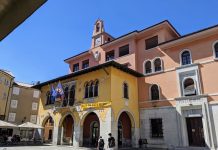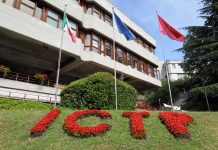by Maximiliano Crocamo
Interview: Alessia Rosolen, Regional Councilor for Education of Friuli Venezia Giulia; Daniela Beltran, Director of the Friuli Venezia Giulia Regional School Office
The regional government of Friuli Venezia Giulia announced on Thursday a new school support package for the 2025-2026 academic year, allocating 4.5 million euros to bolster the region’s education system.
The announcement was made by Alessia Rosolen, the regional councillor for education, during a presentation in Trieste. She explained that the initiative, which originated during the Covid-19 pandemic, aims to provide additional support to school personnel and enhance educational services for students.
“This funding will provide over 120,000 additional hours of work for school staff and implement measures to benefit students,” Rosolen said.
The resources are primarily directed towards administrative and technical staff (known as Ata personnel), special education support for children with disabilities, expanded physical education programs, and improvements in educational offerings.
Friuli Venezia Giulia, together with Sardinia, is among the few Italian regions to invest regional funds in school staff hours that count toward official seniority, Rosolen noted.
The package includes a 2 million euro investment to increase Ata personnel hours by approximately 80,000, with additional emphasis on schools in more remote or undersized areas.
Support for inclusion programs totals 1.55 million euros, divided into funds for special education teachers (7,850 extra hours), support for students with specific learning disorders (4,900 hours), and resources for broader special educational needs (17,650 hours), representing a significant increase over last year’s allocations.
A notable new feature is a 500,000 euro investment to expand physical education hours in middle and high schools, adding nearly 9,800 hours aimed at promoting physical activity as a key part of the educational experience.
Funding was also increased for educational staff in boarding schools and residential institutions, with 60,000 euros allocated for 1,176 additional hours, particularly focused on supporting students with disabilities.
To encourage academic excellence, the region established a 150,000 euro fund to assist schools participating in national and international competitions, providing lump-sum contributions for these activities.
Finally, a reserve fund of 240,000 euros will remain available to address any unforeseen needs or adjustments during the school year.





























